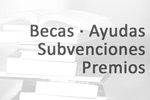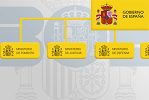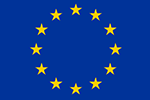Product standards and requirements. pharmaceutical sector
Content
Medicines and active substances
Medicines are regulated throughout their life cycle. All medicines used in Spain must have obtained a marketing authorisation granted by the Spanish Agency of Medicines and Medical Devices (AEMPS). Once the quality, safety and efficacy have been assessed and approved, any variations must also be authorised and notified to the AEMPS. These assessments ensure that a positive relationship is maintained between the benefit and the risk of the medicine throughout its life cycle on the market.
The medicines regulated by the AEMPS include such diverse products as medicines of chemical and biotechnological origin, blood products, vaccines, herbal medicines, homoeopathic medicines, radiopharmaceuticals or cell therapies.
How to check whether a medicine is authorised
To find out whether or not a medicine is authorised, see the AEMPS Medicinal Products Online Information Centre ( CIMA![]() for medicines for human use and CIMAvet
for medicines for human use and CIMAvet![]() for veterinary medicines) on the AEMPS website
for veterinary medicines) on the AEMPS website![]() , which provides constantly updated information on all the medicines authorised by the AEMPS.
, which provides constantly updated information on all the medicines authorised by the AEMPS.
-
Authorisation
A medicine cannot be marketed in Spain without first obtaining authorisation from the AEMPS or the European Commission.
The marketing authorisation is granted on the basis of scientific criteria relating to the quality, safety and efficacy of the medicine in question. These three criteria are used to assess the benefit/risk ratio of the medicine in respect of the illnesses and diseases and the situations for which it is authorised.
For several years now, common technical criteria have been established in the European Union (EU) for the assessment and authorisation of medicines.
This means that there are Europe-wide authorisation procedures and that medicines can opt either for:
- National authorisation with validation for a single country, or
- Authorisation valid for several countries in the EU, enhancing the effectiveness and efficiency of the network of European medicines agencies.
Following authorisation, the medicine is monitored constantly for any new developments in terms of risks and new uses, meaning that the authorisation may be reviewed at any time.
Any change the manufacturer wishes to make to a medicine after authorisation must be assessed following the same procedure as for the original authorisation.
-
Authorisation procedures
National procedure
The applicant files an application with the AEMPS, providing all the information necessary for the marketing authorisation for the medicine in Spain.
Decentralised procedure
The applicant files the application for authorisation simultaneously in several EU countries.
The various agencies assess the medicine in collaboration, with one agency acting as coordinating or reference agency and, at the end of the process, all the agencies issue an identical authorisation valid for the relevant territory.
Mutual recognition procedure
This is used when a medicine already holds a Community marketing authorisation.
The holder of this authorisation may file an application for recognition thereof in other EU Member States, informing both the Member State that granted the original authorisation (reference Member State) and the European Medicines Agency.
The reference Member State forwards the report on the assessment of the medicine to the Member States involved, who recognise the original marketing authorisation if they see fit.
Centralised procedure
The applicant opts for an authorisation for all EU Member States at the same time.
In this case, the European Medicines Agency handles the administrative process and the scientific evaluations are performed by two Member States (rapporteur and co-rapporteur), which send their reports to the other Member States.
A scientific committee, which reports to the European Medicines Agency, prepares the opinions of the agency relating to any issue concerning the assessment of the medicines.
Once a positive technical opinion has been issued, the European Commission grants to the applicant the marketing authorisation, which is valid for the whole of the EU.
-
How a medicine is assessed: the authorisation dossier
Marketing a medicine
Once the various steps in the research and development of the medicine have been successfully completed, in order to market the medicine, it is necessary to apply for an authorisation by providing all the results obtained through research and development on:
- The medicine,
- Information about how it is made,
- A risk management plan and, in general,
- All the documents showing that all of the conditions for the medicine to be authorised have been met.
During the assessment process, the AEMPS reviews the available data both from the preclinical phase and the clinical trials, and information on the manufacture of the medicine and chemical and pharmaceutical controls, and the medicine, its raw materials or intermediate product may be analysed.
This is done by the agency’s own official control laboratories or by inspecting the facilities where the medicine in question or the active substances are manufactured.
When the assessment of a medicine results in approval, a marketing authorisation is issued which includes the conditions laid down by the AEMPS to ensure proper use of the medicine: dose, precautions, contraindications, etc.
These conditions are contained in the information on the use of the medicine intended for:
- Health professionals: available in the technical data sheet, and
- Patients: in the leaflet for each medicine.
These must comply with the provisions of Royal Legislative Decree 1/2015 of 24 July
 2015 approving the recast text of the Law on guarantees and rational use of medicines and healthcare products and the legislation implementing it.
2015 approving the recast text of the Law on guarantees and rational use of medicines and healthcare products and the legislation implementing it.
Healthcare products
For a healthcare product to be placed on the market and put into service in Spain, it must bear the CE mark. There are some exceptions:
- Customised products,
- Products intended for clinical research, and
- In vitro diagnostic medical devices intended for performance evaluation do not bear the CE mark.
The specific regulations and general requirements that must be met by a product for the manufacturer to be able to apply the CE mark, and the procedures for assessing conformity for obtaining the CE mark, can be found here:
Legislation on active implantable medical devices![]()
Legislation on healthcare products![]()
Legislation on in vitro diagnostic medical devices![]()
Healthcare products must meet:
- The essential requirements in the case of directives, and
- The safety and operational requirements in the case of regulations that apply depending on the final purpose.
Conformity assessment
The manufacturer is responsible for declaring that the product meets all the requirements. It must draw up a technical dossier documenting product conformity and draw up and sign the EU declaration of conformity.
Depending on the product classification, a conformity assessment requires the intervention of a notified body.
The NANDO![]() page shows the designated notified bodies for each directive and regulation.
page shows the designated notified bodies for each directive and regulation.
If a notified body is required to intervene, the CE marking must be accompanied by the identification number of the notified body.
With regard to healthcare products, conformity with harmonised standards is one way that manufacturers can demonstrate compliance with the essential requirements in the case of directives and the general safety and operational requirements in the case of regulations, as well as with other legal requirements, such as those relating to quality and risk management, established in the regulation.
Harmonised standards
References to harmonised standards should be interpreted as relating to harmonised standards whose references have been published in the Official Journal of the EU.
In addition, references in the regulation to harmonised standards shall also include the monographs of the European Pharmacopoeia adopted in accordance with the Convention on the Elaboration of a European Pharmacopoeia, in particular on surgical sutures and on interaction between medicines and materials used in products as containers for medicines, provided that the references of these monographs have been published in the Official Journal of the EU.
Regulation 2017/745 ![]() on medical devices also applies to products without an intended medical purpose listed in Annex XVI of that Regulation. These products must meet the common specifications and harmonised standards existing for similar products with an intended medical purpose, based on similar technology.
on medical devices also applies to products without an intended medical purpose listed in Annex XVI of that Regulation. These products must meet the common specifications and harmonised standards existing for similar products with an intended medical purpose, based on similar technology.
Labelling and instructions for use
When put into service in Spain, the products must include the data and information corresponding to the labelling and the instructions for use, at least in Spanish, to ensure the definite, objective availability of sufficient, effective and accurate information on their essential characteristics.
Notifications concerning healthcare products
Any natural or legal person making available, for the first time, for distribution and/or use in Spanish territory, an active implantable medical device, healthcare products in classes IIa, IIb and III and in vitro diagnostic medical devices included in Annex II of Directive 98/79/EC and in vitro diagnostic medical devices for self-diagnosis, must send a marketing and commissioning notification to the AEMPS, through the CCPS (notifications concerning healthcare products)![]() application.
application.
Moreover, any manufacturer established in Spain who places on the market class I medical devices or customised products, or who puts together products bearing the CE mark, must notify the AEMPS registry of marketing managers, through the RPS (register of healthcare product managers)![]() application. This obligation also applies to the authorised representative if established in Spain.
application. This obligation also applies to the authorised representative if established in Spain.
Furthermore, manufacturers of in vitro diagnostic medical devices established in Spain must notify the AEMPS marketing registry, through the RPS (register of healthcare product managers)![]() application. Authorised representatives, established in Spain, of manufacturers who do not have a registered office in an EU Member State, must also submit this notification.
application. Authorised representatives, established in Spain, of manufacturers who do not have a registered office in an EU Member State, must also submit this notification.
The national legislation on healthcare products also applies to other products which are not healthcare products, such as non-corrective contact lenses and apparatus and instruments used for permanent or semi-permanent make-up or skin tattooing via invasive methods. These products must meet the essential requirements applicable to them, although they cannot bear the CE mark. Legislation on products not included in directives.![]()
EUDAMED database
MDR EUDAMED is the IT system developed by the European Commission to implement Regulation (EU) 2017/745![]() on medical devices and Regulation (EU) 2017/746
on medical devices and Regulation (EU) 2017/746![]() on in vitro diagnostic medical devices.
on in vitro diagnostic medical devices.
The EUDAMED![]() database will have several modules and will be officially published as soon as all the modules are ready and operational. However, the Commission will facilitate access to the various EUDAMED modules as they become available, so that they may be used on a voluntary basis.
database will have several modules and will be officially published as soon as all the modules are ready and operational. However, the Commission will facilitate access to the various EUDAMED modules as they become available, so that they may be used on a voluntary basis.
Distribution and sale of healthcare products
Natural or legal persons specialising in the distribution and sale of healthcare products must notify the health authorities in the autonomous community where they are established before starting to trade.
Sale to the public by mail order or online sale of medicines and healthcare products that require a medical prescription and in vitro diagnostic medical devices for self-diagnosis is prohibited. In vitro diagnostic medical devices for self-diagnosis can only be sold to the public through pharmacies.
Advertising of healthcare products
As regards direct advertising to the public, advertising messages in any media, including the internet, and any other promotional material intended for the public must be authorised in advance by the health authorities in the autonomous communities.
Cosmetics
Cosmetics are regulated in Europe by:
- Regulation (EC) No 1223/2009 of the European Parliament and of the Council of 30 November 2009 on cosmetic products

- Commission Regulation (EU) No 655/2013 of 10 July 2013 laying down common criteria for the justification of claims used in relation to cosmetic products.

- Commission Implementing Decision of 25 November 2013 on Guidelines on Annex I to Regulation (EC) No 1223/2009 of the European Parliament and of the Council on cosmetic products.

In Spain, they are regulated by:
- Royal Decree 85/2018 of 23 February regulating cosmetic products.

- Royal Legislative Decree 1/2015 of 24 July approving the recast text of the Law on guarantees and rational use of drugs and health products

Facilities
The facilities used to manufacture these products must have a quality system that complies with best manufacturing practices.
These facilities must also be the subject of a statement of compliance, declaring that they meet the requirements laid down in the applicable legislation to start their activity.
The AEMPS checks these statements and orders the necessary inspections.
The responsible person must guarantee product safety and compliance with the legal requirements, and that person’s name and address must feature on the product labelling.
Marketing of the product
The legislation sets out a number of requirements which must be met for marketing these products. In particular:
- The composition of cosmetics is subject to a number of restrictions listed in Chapter IV of Regulation 1223/2009
 .
. - The product labelling must contain at least the information stated in Article 19 of Regulation 1223/2009
 , in line with the stipulations of Royal Decree 85/2018.
, in line with the stipulations of Royal Decree 85/2018.
- When a product is placed on the market, the responsible person must have a file of information on the product, including a cosmetic product safety report in accordance with Annex I of Regulation 1223/2009.

- The responsible person must submit to the European Commission, via the European Cosmetic Product Notification Portal (CPNP)
 , certain information on the composition, labelling and marketing of every product placed on the market.
, certain information on the composition, labelling and marketing of every product placed on the market. - The claims made relating to the cosmetic product must comply with the common criteria established in Regulation 655/2013.

To facilitate the application of certain articles of the Regulation which, owing to their nature or novelty, require special attention, the Commission, in close collaboration with the Member States and other interested parties, has drafted and adopted the following specific guidelines:
- Serious Undesirable Effects reporting
 guidelines which create the basis for a uniform approach to the management of serious undesirable effects, an essential tool to facilitate compliance with Article 23 of Regulation 1223/2009
guidelines which create the basis for a uniform approach to the management of serious undesirable effects, an essential tool to facilitate compliance with Article 23 of Regulation 1223/2009 .
. - Commission Implementing Decision of 25 November 2013
 on Guidelines on Annex I to Regulation (EC) No 1223/2009 of the European Parliament and of the Council on cosmetic products, the aim of which is to ensure that all companies, in particular small and medium-sized enterprises, understand the requirements established in Regulation 1223/2009
on Guidelines on Annex I to Regulation (EC) No 1223/2009 of the European Parliament and of the Council on cosmetic products, the aim of which is to ensure that all companies, in particular small and medium-sized enterprises, understand the requirements established in Regulation 1223/2009  for preparing the cosmetic product safety report.
for preparing the cosmetic product safety report. - Commission Decision (EU) 2019/701 of 5 April 2019
 establishing a glossary of common ingredient names for use in the labelling of cosmetic products. This glossary is a list of the names which must be used for ingredients in the labelling of cosmetic products.
establishing a glossary of common ingredient names for use in the labelling of cosmetic products. This glossary is a list of the names which must be used for ingredients in the labelling of cosmetic products.
Furthermore, the Sub-working Group on Claims [1] has drawn up the Technical Document on Cosmetic Claims ![]() which was subsequently approved by the Working Group on Cosmetic Products. This document provides a detailed description of the common criteria to be met by cosmetic claims, including illustrative and non-exhaustive examples of claims, along with best practices for obtaining evidential support used for the justification of cosmetic claims, and guidance for the application of the common criteria for ‘free from’ claims, and additional criteria applicable to the specific type of claim ‘hypoallergenic’.
which was subsequently approved by the Working Group on Cosmetic Products. This document provides a detailed description of the common criteria to be met by cosmetic claims, including illustrative and non-exhaustive examples of claims, along with best practices for obtaining evidential support used for the justification of cosmetic claims, and guidance for the application of the common criteria for ‘free from’ claims, and additional criteria applicable to the specific type of claim ‘hypoallergenic’.
More information of interest:
[1] The Working Group is presided by the European Commission and is made up of representatives of all Member States of the EU and EFTA, the European Consumer Organisation (BEUC), the Personal Care Association (Cosmetics Europe), the European Federation for Cosmetic Ingredients (EFfCI), the International Fragrance Association (IFRA), the European Organization of Cosmetic Ingredient Industries and Services (Unitis), the European Association of Craft, Small and Medium-sized Enterprises (UEAPME), the International Natural and Organic Cosmetics Association (Natrue) and the European Cosmetics Responsible Person Association (ERPA).
Personal care products
Personal care products require a marketing authorisation exclusively for Spain issued by the AEMPS. These products are regulated by:
- Royal Decree 1599/1997 of 17 October regulating cosmetic products

- Royal Legislative Decree 1/2015 of 24 July approving the recast text of the Law on guarantees and rational use of drugs and health products

- Royal Decree 85/2018 of 23 February regulating cosmetic products.

Facilities
The facilities used to manufacture these products must have a quality system and must issue a statement of compliance, declaring that they meet the requirements laid down in the applicable legislation to start their activity.
Instructions and forms for the statement of compliance:
There are instructions and forms for submitting the statement of compliance in respect of manufacturing and/or importing personal care products![]() , which provide information on this procedure.
, which provide information on this procedure.
Marketing of the product
The marketing authorisation for the product is valid for 5 years, after which revalidation may be requested if marketing is to be continued.
To request an authorisation, modification or revalidation, there is a document with instructions and forms: application for marketing authorisation for personal care products.![]()
The fee![]() can be paid through the Fee Payment application
can be paid through the Fee Payment application![]() .
.
All documents relating to the personal care product and the receipt for payment for the application must be submitted online.
Any undesirable effects arising from use of the product may be communicated.![]()
Biocides
Biocides are regulated in Europe by:
In Spain they are regulated by:
- Royal Decree 1054/2002 of 11 October regulating the evaluation process for the registration, authorisation and marketing of biocides

- Royal Decree 3349/1983 of 30 November amending the Technical Health Regulations for the manufacture, marketing and use of pesticides

Facilities
The facilities used to manufacture, import and store these products in Spain must have a quality system and must have obtained a licence prior to operation, issued by the AEMPS after evaluating the documentation and inspecting the facilities.
- Instructions on the procedure to be followed for authorisation of the manufacture, importing and/or storage of insect repellents (pesticides for personal hygiene)

- Instructions on the procedure to be followed for authorisation of the manufacture, importing and/or storage of disinfectants for clinical use – antiseptics for unbroken skin.

Marketing of the product
Before these products can be marketed in Spain, an authorisation must be obtained from the AEMPS. For this purpose, the documentation relating to the product must be submitted to the AEMPS, including documents on efficacy.
The documents to be submitted include:
- A signed declaration of composition.
- Proof of compliance showing that the supplier of the biocidal active substance(s) included in the composition of this product is on the ECHA list of suppliers of active substances.
- Efficacy data.
- Real time and accelerated stability.
- Safety data sheets for the finished product and the rest of the components making up the product.
- Analytical report including the checks on the finished product and microbiological controls performed on the finished product.
- Product labelling as it will appear on the market, in Spanish.
The only intended function of these products is biocidal action against the target organisms, in accordance with the conditions of said authorisation. For this reason, the claimed biocidal efficacy (viricidal, bactericidal, fungicidal, yeasticidal, etc.) must be demonstrated by the efficacy test as specified in European Standard EN 14885: Application of European standards for chemical disinfectants and antiseptics. This test must be carried out in a laboratory accredited by ENAC (the national accreditation entity) or meeting the standards of good laboratory practice (GLP).
Forms for obtaining national authorisation for a biocide
The form and necessary documents for obtaining national authorisation in Spain for a biocide from the AEMPS are found at this link. The authorisation is valid for 5 years, and may be subsequently revalidated:
- Form for requesting authorisation for disinfectants for health purposes – antiseptics for healthy skin

- Form for requesting authorisation for insect repellents (pesticides for personal hygiene)

Payment![]() may be made through the AEMPS Virtual Office
may be made through the AEMPS Virtual Office![]()
Form 317 can be downloaded from the AEMPS Virtual Office, which can also be used for payments, preferably online through the application.
The documents relating to the biocide and the receipt for payment for the application must be submitted online.![]()
Legal and/or technical references
-
Royal Legislative Decree 1/2015 of 24 July approving the recast text of the Law on guarantees and rational use of drugs and health products

-
Legislation on medicines for human use – Registration of medicines

-
Legislation on veterinary medicines

-
Legislation on healthcare products

-
Legislation on cosmetics

-
Legislation on personal care products

-
Legislation on biocides under the terms of reference of the AEMPS











